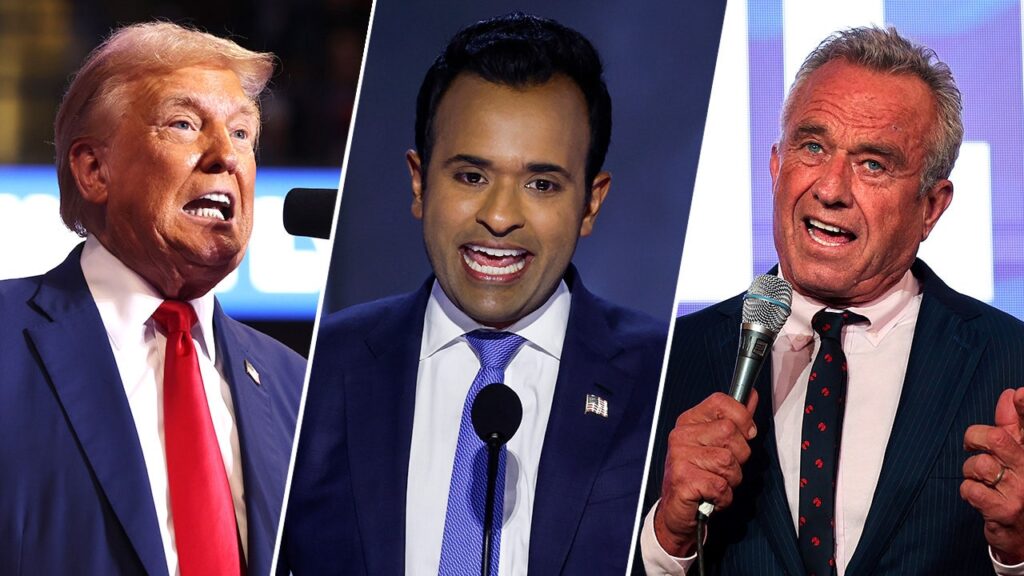President-elect Donald Trump was indicted four times — including two indictments arising out of his failed attempt to steal the 2020 election. One of these indictments even yielded a conviction, albeit on 34 relatively minor charges of falsifying business records.
But the extraordinary protections the American system gives to sitting presidents will ensure that Trump won’t be going to prison. He’s going to the White House instead.
The federal charges against Trump are doomed
Two of the indictments against Trump are federal, and two were brought by state prosecutors in New York and Georgia. The federal indictments (one about Trump’s role in fomenting the January 6 insurrection, and the other about his handling of classified documents) are the most immediately vulnerable. Once Donald Trump becomes president, he will have full command and control over the US Department of Justice, and can simply order it to drop all the federal charges against him. Once he does, those cases will simply go away.
The White House does have a longstanding norm of non-interference with criminal prosecutions, but this norm is nothing more than that — a voluntary limit that past presidents placed on their own exercise of power in order to prevent politicization of the criminal justice system. As president, Trump is under no constitutional obligation to obey this norm. He nominates the attorney general, and he can fire the head of the Justice Department at any time.
Indeed, Trump is reportedly considering Judge Aileen Cannon, a judge who has consistently tried to sabotage one of the Justice Department’s prosecutions of Trump, to be the next US attorney general. Cannon, who oversees Trump’s federal classified documents’ trial, even tried to disrupt the Justice Department’s investigation into Trump before he was indicted. There’s no indication that her apparent loyalty to Trump would diminish if she becomes the nation’s top prosecutor.
The fate of the state charges is a little more uncertain, but they are unlikely to amount to anything either
The fate of the state charges against Trump is a little more uncertain, in large part because there’s never been a state indictment of a sitting president before, so there are no legal precedents governing what happens if a state attempts such a prosecution (or, in the case of New York, to impose a serious sentence on a president who was already convicted).
It is highly unlikely that the state prosecutions can move forward, however, at least until Trump leaves office. On the federal level, the Department of Justice has long maintained that it cannot indict a sitting president for a variety of practical reasons: The burden of defending against criminal charges would diminish the president’s ability to do their job, as would the “public stigma and opprobrium occasioned by the initiation of criminal proceedings.” Additionally, if the president were incarcerated, that would make it “physically impossible for the president to carry out his duties.”
There’s little doubt that the current Supreme Court, which recently held that Trump is immune to prosecution for many crimes he committed while in office, would embrace the Justice Department’s reasoning. The Court’s decision in Trump v. United States, the immunity case, rested on the Republican justices’ belief that, if a president could be indicted for official actions taken in office, he “would be chilled from taking the ‘bold and unhesitating action’ required of an independent Executive.”
The kind of justices who favor such “bold and unhesitating action” over ensuring presidential accountability to the law are unlikely to tolerate a prosecution of a sitting president.
These same practical considerations would apply with equal force to a state prosecution of a president, and there’s also one other reason why a constitutional limit on state indictments of the president makes sense. Without such a limit, a state led by the president’s political enemies could potentially bring frivolous criminal charges against that president.
This argument may not seem particularly compelling when applied to a convicted criminal like Donald Trump. But imagine if, say, Ron DeSantis’s Florida had attempted to indict, try, and imprison President Joe Biden. Or if the state of Mississippi had indicted President Lyndon Johnson to punish him for signing civil rights legislation that ended Jim Crow.
In constitutional law, the same rule that applies to liberal democratic presidents like Biden or Johnson must also apply to an anti-democratic president like Trump.
One open question is whether Trump could be incarcerated during the lame-duck period before he is sworn into office. The only state that could conceivably do this is New York, as that is the only place where Trump has been convicted. Trump is currently scheduled for a sentencing hearing on November 26 in that case.
The question of whether an already-convicted president-elect can be incarcerated is unique — this situation has thankfully never arisen before in US history, so there’s no definitive law on this subject. But it’s worth noting that neither the New York prosecutors nor the judge overseeing this case have pushed for a quick sentencing process. Judge Juan Merchan chose to delay sentencing until after the election, and the prosecution did not oppose this move. Merchan may decide to delay matters even further now that Trump has won the election.
And even if the sentencing does move forward, the charges against Trump in New York are relatively minor, and could only result in him being fined or sentenced to probation.
Again, there’s never been a state prosecution of a sitting president before, so there are no precedents to rely on here. It’s possible that, once Trump leaves office, New York or Georgia (the other state with an open case against Trump) may try to resume its long-pending prosecutions against him — although that assumes that the 78-year-old Trump survives his second term in office, and that these states still have the will to prosecute him four years from now.
The bottom line is that these prosecutions are likely dead. And they are almost certainly going nowhere for the next four years.


